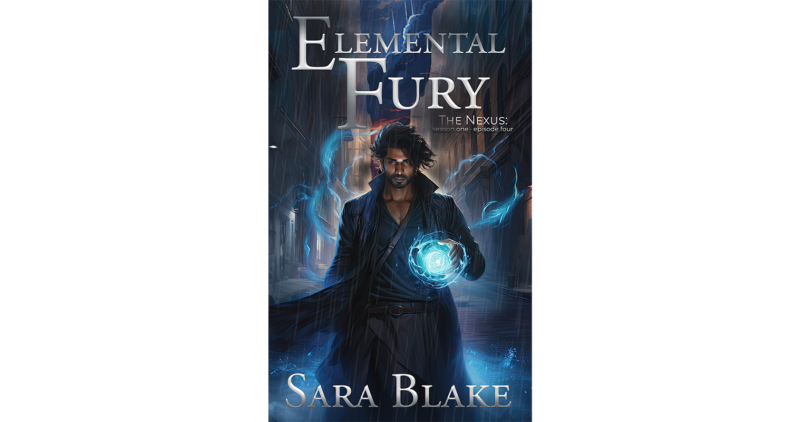In any genre of fiction, there are certain key elements that define that genre. Not every story/book/series will incorporate all of them, but it should include a significant number of them in order to qualify for classification under that particular genre.
In Fantasy fiction, the single most defining element is magick.
No matter what sub-genre or type of magick you’re writing, if there aren’t magickal aspects to your world, you might be writing a truly great book, but you’re not writing Fantasy. Fantasy is as defined by magick as Science Fiction is by science or Romance is by, well, romance.
Magickal Systems
When the subject of writing Fantasy comes up in a discussion amongst authors, one question almost inevitably comes up: “What’s your magick system?”
Because, for most Fantasy authors, one of the first things they do is figure out exactly how magick works in their world. Some writers spend more time and pages working out their magickal system than they do their actual plot.
Real Magick
I write fiction, and most of my fiction includes magick. But that doesn’t mean I believe all magick is fictional, because I’m also a practicing Pagan and magick is a part of my real life as well. (That’s also a lot of why I include the “k” in my spelling. That’s a whole other topic I’ll write about on this blog eventually, but not today.)
I don’t know how many Fantasy authors also practice real magick, or at least know something about it, but I’m confident it’s more than are as open about it as me. I say this because it seems logical for there to be a significant overlap of interests–if you’re interested in magick in the real world, then it would stand to reason your fictional tastes would lean the same way. And we witches tend to be a bookish bunch, after all.
So, I’d expect to see a lot of real–or, at least, realistic–magick in Fantasy novels. But I don’t. Fantasy novels often lean pretty heavily into mythology, and a few do work in some realistic elements like crystals and meditation methods but, for the most part, the magick in Fantasy novels is almost always the “I made up a magick system and here’s the 500-page manual for it to go along with my 400-page novel” variety.
Real Magick Is Boring
The thing is, though, while I believe in–and practice–real magick, it’s just not flashy and impressive enough for fiction. Rubbing charged oil on a candle of a particular color and burning it while visualizing your intended outcome, and then seeing the result manifest sometime within the next twenty-eight day moon cycle is pretty cool in real life. But, on page, it’s slow, boring, and kind of stupid. You can’t fight off a charging werewolf with a black candle and some protection oil.
This means that, while I do write real magick in my books, I also have to embellish… a lot. My fictional worlds, therefore, are places where real magick exists, but it also has the potential to work a whole lot better for a talented few than it does for the rest of us.
Those talented few, then have created additional methods and systems that we ordinary practitioners could never dream of making work.
It’s very important to me, though, to maintain that underlying “magick is for everyone” position. Sure, we regular folk can’t do the Elemental Magick from my Barrow City world or any of the colored-light spells the mages in Arcanum throw around, but that doesn’t mean there aren’t average citizens in both of my fictional cities rubbing oil on colored candles and visualizing themselves a promotion at work or a new love.
Real magick may be boring, but I don’t see that as a reason to eliminate its existence entirely. To me, the attitude that real magick needs to be ignored in order for the fictional magick to exist is akin to suggesting that ordinary humans in a comic book should be unable to walk just so a character like The Flash can run.
Why All of This Matters
And, finally, we arrive at the real reason for this post, because it’s something I pay almost constant attention to when writing magick. I said I’m surprised more people don’t write real magick in their books, but I’m also not, because I’ve seen some seriously bad attempts at it. I think a lot of people probably avoid it all together, for fear of doing something like the bad things I’ve seen.
Research is important for any writer. Some people forget this, thinking research is just for those writing Historical fiction or highly technical SciFi. But we all have to do it, and that includes where magick is concerned. We cannot, as a member of my former writers’ group once said of writing magick, “just make some shit up.”
And, I mean, technically you can make everything up when it comes to something like creating a magick system. But, if you do, you need to make sure what you’re writing really is made up. It’s all well and good to pull a mythical monster from a book and redesign it for your own purposes. It’s very much another thing to take someone’s current, existing, real-world beliefs and practices and fictionalize those in the same way.
The offenders here are the ones who pick up a Wicca 101 book at Barnes & Noble or who Google “witchcraft” and take a few notes, then just pepper their made-up magick with words they found.
Even my favorite show, Buffy the Vampire Slayer, is guilty of this. The witchcraft Willow and Tara practice is reasonably well developed and depicted, but Whedon, for some reason, thought it was a good idea to call it “Wicca.” And, believe me, what those two practice is about as close to Wicca a knitting is to basketball.
I read (part of) a Paranormal Romance novel a while back, drawn to something not my usual genre because it was about Greek gods and looked interesting. But it wasn’t. The author (whom I’m choosing not to name here) used the names of actual gods and demigods from mythology, but they weren’t. “Zeus” was nothing but a renaming of the Christian God. The others, whom I honestly don’t even remember if they were other gods, demigods, heroes, or what, were being punished by Zeus for “sins,” and would be sent to “Hades” if they didn’t manage to atone.
None of this makes even the slightest bit of sense in terms of actual Ancient Greek belief. The author decided she wanted to do a spin on an Greek myth, but then spun it by merging it with Christianity until it was unrecognizable. I don’t know if she did this to be more relatable to her readers or because she honestly thinks any time the word “god” is in play the rules are all the same. The actual writing was very good, but I just couldn’t read it.
The Really Bad Book
Then, there’s the seriously bad book. The one that’s the reason I’m so very, very careful to be crystal clear on my pages what’s real magick, what’s Wicca, what’s non-Wicca Paganism, and what’s completely made-up fantasy magick. The one that’s the reason I’m writing this whole ranty post, despite the book being very old at this point.
I thought a lot about whether to name this book, but I think I’m going to leave it anonymous like the one above, because my purpose with this blog isn’t to trash other authors. But I’m going to describe it a bit, to demonstrate exactly why I’m so very, very clear about what’s real and what’s not in my own writing.
It started with a very good book. A vampire novel with a unique twist, one I won’t go into because it’s irrelevant. But it was good, and a very fun read.
The vampires were friends with a coven of witches. We didn’t see a lot of the witches in the first book, but enough to make me want more. When I found out book 2 was going to be focused on those witches, I eagerly waited then bought the book as soon as it came out, ready to devour it.
I think I might have made it to chapter three.
See, what I’d loved about the witches in the first book was they were very realistically Wiccan, which is what I was at the time. That first book used the word “Wicca,” as well as naming Wiccan holidays–or sabbats–and other specifics. These were some edgy Wiccans, to be sure, but they were Wiccans.
If you read Fantasy fiction and this blog, odds are you know a thing or twelve about Wicca already. But let me give you some relevant basics here:
- Wicca is a Pagan religion, unrelated to Christianity in any way.
- Wiccans are very kind–to the extend they often get made fun of by other Pagans for being a religion of “sweetness and light.” Wiccans get called “fluffy bunnies.” Wicca does not allow for using magick to harm, control, or otherwise manipulate another person for any reason. Wicca even requires that you ask permission before doing helpful magick for someone else.
- Wicca is not, in any shape or form, Satanism.
So. In the prologue of this book, this “Wiccan” high priestess is on a plane, reflecting on recent events in her life. She thinks about the “Wiccan Law” that if a witch fails to retaliate–with magick–against anyone who wrongs her in any way, she’ll lose her magick for good. She thinks about a recent ritual her coven performed, and the standard “recitation of the Lord’s Prayer” backwards at the beginning of it.
On and on and on like that. These were Satanic witches of the most made-up ’80s and ’90s “Satanic Panic” ilk imaginable. And if that’s what this guy wanted to write as witches, fine. But he chose to call them “Wiccans,” and throw in words like “Beltane” and “Athame.” This was in the 1990s, before most people had even heard of Wicca, meaning he had to have done some research.
And meaning most people reading would have had no idea this wasn’t what Wicca is. As someone who lived through the ’90s having to explain at least three times a week that I wasn’t a Satanist because I was Wiccan, this understandably pissed me off.
That’s Why
That book is never far from my mind when I’m writing magick. That book is why I feel the need to write articles like this, clarifying the real vs. the fictional.
I have no problem with a non-Wiccan author doing some research and then writing Wiccans. I have no problem with blending real magick and fictional magick.
But it’s irresponsible to blur those lines in a way that suggests to readers you’ve done the research and are depicting real beliefs and practices. That guy very much did that–and it is of utmost importance to me that I never do the same.
Hopefully, I succeed.
And obviously, this could be a segue to a much broader discussion about writing anything from someone else’s culture and fictionalizing it willy-nilly, but I’ll save that for another day.
Sorry for a second overly long post in a row! Hopefully it was worth it!
Talk soon,






